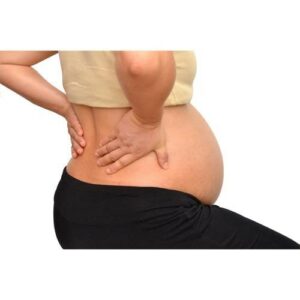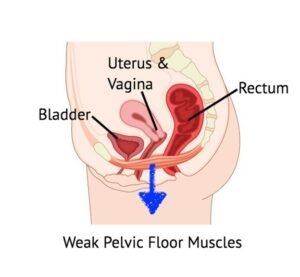5 Effective Treatments for Pelvic Floor Health
Comprehensive Guide to Pelvic Floor Health
We are excited to welcome Kelly Brown Gross, PT, MPT, WCS, an expert in pelvic health with nearly two decades of experience, to Ashworth Chiropractic, Physical Therapy, and Acupuncture. Having previously served patients at The Iowa Clinic in West Des Moines, Kelly brings a wealth of knowledge and specialized expertise in pelvic floor physical therapy. To learn more about common Pelvic Floor problems and 5 things you can do to effective treat issues; keep reading.
Pelvic floor health is essential for both men and women as these muscles provide support for the bladder, intestines, and, in women, the uterus. When these muscles are either too weak or too tight, it can lead to a range of uncomfortable and often life-disrupting symptoms. Fortunately, pelvic floor physical therapy offers targeted, non-invasive treatments that can make a significant difference.
Understanding Pelvic Floor Complaints
- Urinary Incontinence
- Symptoms: Leakage during activities such as laughing, coughing, sneezing, or exercising. Some individuals may feel an urgent need to urinate frequently or even experience nighttime incontinence.
- Causes: Often due to weak or overstressed pelvic muscles, which can result from childbirth, aging, hormonal changes, or high-impact physical activities.
- Overactive Bladder (OAB) and Painful Bladder (Interstitial Cystitis – IC)
- Symptoms: Frequent urination (less than 2 hours between daytime voids), urgency (a strong, sudden urge to void), nocturia (getting up more than once at night to void), feeling of constantly needing to void, pain with bladder filling or upon emptying, and feelings of incomplete emptying.
- Causes: Similar to pelvic pain, these symptoms often arise from muscle spasms, nerve irritation, and inflammation in the pelvic area.
- Bowel Dysfunction
- Symptoms: Constipation, straining during bowel movements, inability to fully empty the bowels, or even fecal incontinence.
- Causes: Weak or overly tense pelvic floor muscles can interfere with bowel function, sometimes due to prolonged sitting, stress, or trauma to the pelvic region.
- Pelvic Pain
- Symptoms: Persistent or recurring pain in the lower abdomen, pelvis, genitals, or rectum. It can feel like a deep ache, sharp pain, or burning sensation and may worsen with physical activity or during a bowel movement.
- Causes: Often stemming from muscle spasms, tension, scar tissue, or nerve irritation, pelvic pain can develop from childbirth, injury, surgeries, or chronic stress.
- Sexual Dysfunction
- Symptoms: Pain during intercourse for women (dyspareunia), erectile dysfunction, reduced sensation, or discomfort related to sexual activity.
- Causes: Dysfunctional pelvic floor muscles—whether too weak or too tense—can contribute to painful or less satisfying sexual experiences. Previous surgeries, injuries, or trauma to the pelvic region can also impact sexual health.
- Pelvic Organ Prolapse
- Symptoms: A sensation of heaviness or pressure in the pelvic area, sometimes accompanied by a visible bulge at the vaginal opening.
- Causes: Weak or stretched pelvic floor muscles can allow organs like the bladder, rectum, or uterus to shift, causing prolapse. Childbirth, menopause, and heavy lifting can contribute.
-
- Symptoms: Dull or sharp pain in the lower back or tailbone area, which can radiate into the pelvis or hips and may worsen with prolonged sitting or standing.
- Causes: Dysfunction in the pelvic floor muscles can lead to imbalances and tension in the lower back and coccyx (tailbone), which are closely connected with the core and lumbar muscles.Low Back Pain and Tailbone Pain (Coccydynia)
- Pregnancy-Specific Low Back and Pelvic Girdle Pain, and Postpartum Weakness
- Symptoms: Pregnancy and postpartum bring specific challenges like low back pain, pelvic girdle pain, and muscle weakness that can affect daily function.
- Causes: The added weight, hormonal changes, and shifting of the body’s center of gravity can place stress on the pelvic floor and associated muscles.

Pelvic Floor Physical Therapy Treatments
At Ashworth Chiropractic, Physical Therapy, and Acupuncture, Kelly Brown Gross offers personalized treatment plans for pelvic floor complaints with a comprehensive approach:
- Manual Therapy: Kelly applies hands-on techniques to mobilize, and release tension in the pelvic floor muscles, improving blood flow and alleviating pain. This is especially helpful for patients experiencing pelvic pain, tailbone pain, and bowel issues.
 Pelvic Floor Exercises and Muscle Coordination: Kelly focuses on teaching PF connection through hands-on assessments, helping patients understand and strengthen their muscles without using biofeedback devices. She emphasizes correcting muscle imbalances, a common cause of most pelvic floor issues, including incontinence and prolapse.
Pelvic Floor Exercises and Muscle Coordination: Kelly focuses on teaching PF connection through hands-on assessments, helping patients understand and strengthen their muscles without using biofeedback devices. She emphasizes correcting muscle imbalances, a common cause of most pelvic floor issues, including incontinence and prolapse.- Education and Lifestyle Guidance: Kelly provides education on lifestyle adjustments that can impact pelvic health, from hydration and diet to stress management and effective toileting habits.
- Breathing and Relaxation Techniques: Kelly teaches diaphragmatic breathing and relaxation techniques, which are essential for reducing chronic tension and pain in the pelvic area.
- Posture Restoration: As a primary treatment focus, Kelly emphasizes posture correction—guiding patients on sitting, standing, and walking posture, as well as functional movement patterns. This approach is particularly beneficial for pregnancy-specific conditions and individuals with low back or pelvic pain.
Why Pelvic Floor Therapy Matters

For many, pelvic floor dysfunction can feel isolating or embarrassing, but it is incredibly common, and highly effective treatments are available. Through dedicated therapy, patients regain comfort, confidence, and a better quality of life. Kelly’s patient-centered, compassionate approach helps each person navigate their journey to improved pelvic health with privacy, dignity, and respect.
If you’re experiencing any of these symptoms or want to improve your pelvic health, you can schedule a consultation or call our office at 515-225-4002 . Kelly Brown Gross is here to guide you toward a healthier and stronger pelvic floor.



